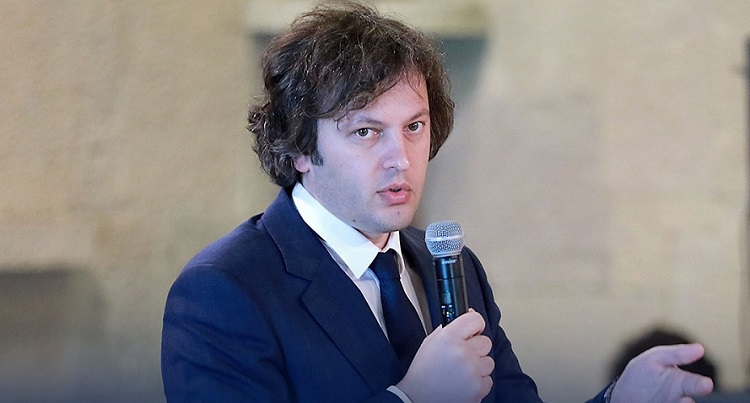Venice, EU commissions’ views on deoligarchisation bill “contradictory” - ruling party head

Irakli Kobakhidze claimed the systemic approach recommended by the Venice Commission was “very unlikely” to resolve issues related to potential oligarchs. Photo: Irakli Kobakhidze’s Facebook
Irakli Kobakhidze, the head of the ruling Georgian Dream party, on Wednesday claimed the opinions of the Venice Commission of the Council of Europe and the European Commission on the Georgian deoligarchisation bill “contradict each other”.
Commenting following critical assessments by the former body of the domestic bill - designed to address one of the conditions for Georgia to be granted the EU membership candidate status - Kobakhidze said his party was ready to reject the bill after its adoption if the European Commission removed it from the recommendations.
The Venice Commission’s opinion on Monday recommended the Georgian authorities to drop the legislative piece - which it said was using a “personalised”, instead of “systemic”, approach to curbing oligarchic influence on the domestic politics - and instead implement a wide range of systemic reforms to prevent the concentration of power in the hands of wealthy individuals.
In his press comments, Kobakhidze claimed the European Commission’s condition on the matter that urged the Georgian authorities to “implement the commitment to deoligarchisation by eliminating the excessive influence of vested interests in economic, political, and public life”, implied a “personalised and not systemic approach” to the problem, in an alleged contradiction to the Venice Commission’s opinion.
Just published: #Georgia - Final Opinion on the draft law on de-oligarchisation –
— Venice Commission (@VeniceComm) June 13, 2023
Venice Commission says the revised draft law on de-oligarchisation should not be adopted.
Text of the opinion: https://t.co/9nstQTzjkq pic.twitter.com/L5DNhvAGbL
In the wake of the Georgian Parliament’s adoption of the controversial bill with its second reading late on Tuesday - a day after the publication of the Venice Commission recommendations - Kobakhidze pledged his party was ready to drop the bill after its final approval if the European Commission removed the note on deoligarchisation from its conditions by December.
He also added the law would not come into play until next year to allow for assessments of the European Commission on the topic, as the bloc is preparing to make its decision on whether to grant Georgia the membership candidate status in December.
However, the Parliamentary official also claimed the systemic approach recommended by the Venice Commission was “very unlikely” to resolve issues related to potential oligarchs, citing the example of David Kezerashvili, the wanted former Defence Minister of Georgia who earlier this year admitted he was funding “pro-Western organisations and media outlets” in the country.
Without a personalised approach, the issue of Kezerashvili in domestic politics would not be resolved”, Kobakhidze said, in reference to the Government's allegations over Kezerashvili’s funding of a “radical wing” of the domestic opposition.
The accusations came following his conviction in March for embezzlement of state funds during his time in office, and his alleged connection with an international scheme defrauding European pensioners, as reported by the British Public Broadcaster in April.
In its remarks on Wednesday, the EU representation in Georgia urged the country’s authorities to follow the Venice Commission’s recommendations against adopting the bill, and expressed the bloc’s readiness to support the country’s Government to find a “better way forward with a systemic approach”.
 Tweet
Tweet  Share
Share